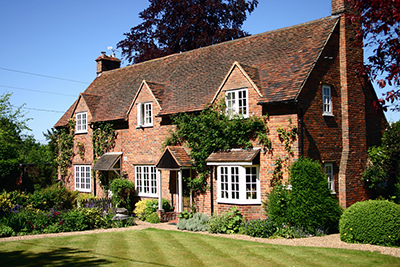The following information was in the Society of Will Writers Newsletter this week. I think it makes very useful reading and I will be putting this into a fact sheet but for now please read;
Property Protection Trusts (PPTs) otherwise known as Life Interest Trusts
Property Protection Trusts (PPTs) are by far one of the most common types of trusts included in wills.
The PPT is designed to take the first to dies share in the home and give someone else (known as the life tenant) a life interest in the property which will give them the protection of living in the property for the remainder of their lifetime or earlier if the trust specifies i.e. remarriage. It also ensures that if the survivor requires long term care, at least half the property is preserved for the benefit of their beneficiaries who are normally the deceased’s children.
These types of trusts are normally used for married couples or civil partners to ensure the share of the home will ultimately pass to the children at the end of the trust period whilst still ensuring the interests of the surviving spouse are protected.
For example, a married couple, who have not been married before want to leave their share of their house to their only child. They currently own the house as joint tenants. Their Estate Planning Consultant would sever the tenancy on the property registering them each as 50% owners. They then have their wills written to represent that if one died, their half of the property would be held on Trust for the benefit of their child but allowing the survivor to live in their share of the property for life or a specified period of time.
Joint Tenants or Tenants in Common?
Considering the point above with regards to severance, when considering a PPT, it is important to be able to distinguish the difference between tenants in common (TiC) and joint tenants (JT). The reason for this is that the property must be held as tenants in common to enter the trust.
What does this mean? To simplify, both TiC and JT refer to how a property is held or owned and this ‘ownership’ is registered with the Land Registry. Traditionally, when houses were purchased, the owners would have been registered as joint tenants. This would have meant that if one tenant died, the other tenant would have inherited the property by virtue of survivorship.
Holding the property as tenants in common means that each owner holds a share of the home which can be gifted via their Will. We would always advise the title is checked as there are occasions where clients may believe the home is held as tenants in common when, upon checking to verify this, the home is in fact held as joint tenants. Obtaining a copy of the title register is a small fee of £3.
When is it set up?
The trust would be set up on the death of the first testator. The legal title will then be transferred into the joint names of the surviving spouse (as an example) and the trustees.
It is important to add here that a property cannot enter a life interest trust on death as until the mortgage has been settled, they are not seen to own the property. The simpler solution would be to ensure that both clients have life cover in place to cover the mortgage on first death. If on death there is still a mortgage on the property and there is nothing in place, the survivor does still have limited options:
- They can sell and downsize as the PPT has downsizing provisions; or
- A cash loan could be taken out to settle the mortgage.
What is the point of a PPT?
The main reason for a PPT is the protection it provides for the beneficiaries i.e. the children, to ensure they are protected and ultimately receive a share of the home.
If the share of the home is simply gifted to the partner directly, this could cause a number of issues – the main one being sideways disinheritance i.e. the surviving partner remarries and the house passes to their new spouse under the Will. A PPT will enable the partner to stay in the home and will avoid the risk of the partner potentially disinheriting the children.
Likewise, if a share of the home is gifted to the children directly while the spouse or partner has the other share, this could cause issues in that the children may want to force step mum out of the property or insist that she pays rent to remain in the property. A PPT prevents this from occurring and essentially protects both parties’ interest. It is important to add the beneficiaries will only own the share of the home when the PPT ends either due to the death of the life tenant or earlier.
Can the property be sold?
A PPT can include powers allowing the life tenant to downsize and use the sale proceeds to purchase a substitute property for the life tenant to live in. The additional proceeds from the sale will remain in the trust and the life tenant can be paid an income from this. This can be useful where the life tenant may not be able to look after a large home as they grow older.
Can the life tenant end the trust sooner?
If the life tenant (Mr) decides to revoke his life interest, he would simply inform the trustees that he wants the life interest to end and the share of the home will be distributed to the beneficiaries. However, if the life tenant also owns a share of the property, this does mean there is a risk that the children, now owning a share of the property, could attempt to force a sale of the property.
If the life tenant decides to revoke their life interest, as it will be earlier than death, the distribution to the beneficiaries will be classed as a Potentially Exempt Transfer (PET) from his estate and therefore he will need to survive the 7 year period for it to not form part of his estate for IHT purposes.
Disadvantages of a PPT
The main disadvantage of a PPT is that this inherently comes with a loss of control over the property for the survivor, since they’d be limited in how they manage the property e.g. would need the trustees agreement to sell, would be unable to take out equity release if needed.
Probate would be required and there would be fees associated with setting the trust up and transferring the property to the trust. Probate is unlikely to be avoided completely unless all the assets are held jointly.
There is also the future IHT liability that this creates since assets in the PPT would be treated as part of the life tenant’s estate for IHT purposes. If they had directly inherited the property, at least they could have had the opportunity to carry out some lifetime planning to reduce this.
How is a PPT taxed?
Inheritance Tax
For inheritance tax (IHT) purposes, the life tenant of the trust is treated as inheriting the trust property on the death of the testator. If the life tenant is the deceased’s surviving spouse or civil partner the spousal exemption will apply and delay any IHT until the life tenant’s death.
When the life tenant dies, everything in the PPT will be revalued and included in their estate for IHT purposes.
Where PPT’s are used between married couples or civil partners, the RNRB will apply if the share of the home passes directly to their direct descendants i.e. children.
Where there are unmarried couples it would be easier to explain using the example below:
Fred and Elsie own a property as tenants in common. They are not married. Fred has 2 children from an earlier marriage. If Fred includes a PPT in his will giving Elsie a life interest in the property until her death and names his children as the beneficiaries at the end of the trust, the RNRB will not apply. The reason for this is because the interest is seen as passing to Elsie and would therefore need to pass to her direct descendants for the RNRB to apply. If, however, Fred and Elsie get married, the RNRB will apply as stepchildren are classed as direct descendants.
Capital Gains Tax
There is no capital gains tax (CGT) payable on the testator’s death. The trustees will acquire the testator’s share in the property at the value at the time of death. There will be no CGT payable on the life tenant’s death.
CGT would need to be considered in the event the property is sold between the testator’s death and the life tenant’s death.
If a PPT covers the main residence, this will allow the private residence relief for CGT to apply and ensure that no CGT will be payable if the property is sold, e.g. to downsize.
Income Tax
Where the property is the life tenant’s main residence, the trust will not be creating any income. However, if the property is rented, cash is released due to downsizing or if the property is not the life tenant’s main residence, the trust will produce an income which will need to be taxed.
The life tenant is entitled to all income of the trust and is generally taxed on the basis that it belongs to the life tenant. However, this will depend on whether the trustees receive the income and then pay it to the life tenant or whether the trustees mandate the income so that the life tenant receives it directly. If the trustees mandate the income, it will be the responsibility of the life tenant to declare and pay the income tax due




